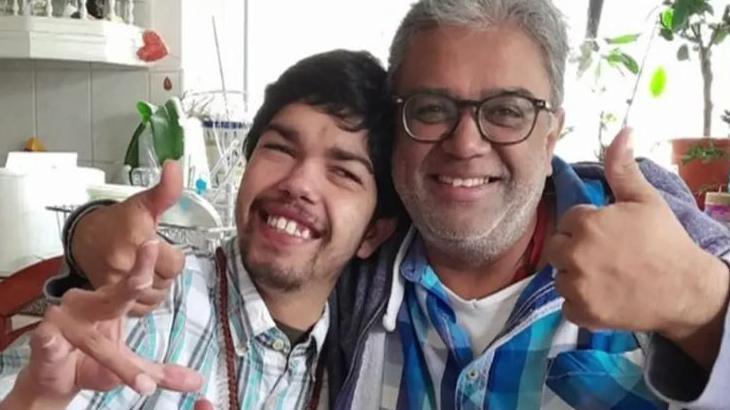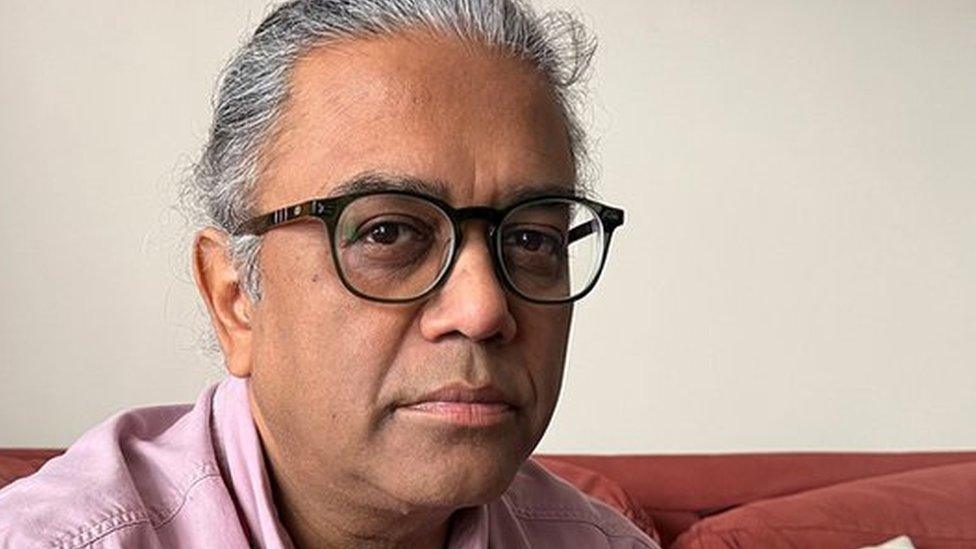Hospital could not stop man's death, inquest hears

Balram Patel (left) died on 9 August 2023 after his lungs became flooded
- Published
A disabled man who died in a London hospital after his parents could not get a second opinion would not have survived either way, a coroner's court has heard.
Balram Patel, 30, from Finchley in north London, died on 9 August 2023 at St Thomas' Hospital after his lungs became flooded.
His father Jay Patel told an inquest that Balram should have been treated with intravenous diuretics but the hospital gave him oral diuretics instead, which had previously shown to not be as effective on him.
Dr Yaso Emmanuel, consultant cardiologist at Guy's and St Thomas' NHS Foundation Trust, said Balram's condition had been worsening from the start of 2023 and that "nobody could prevent him from dying".
'Exhausted other routes'
Balram had multiple disabilities and was developmentally delayed. He was born with half a functioning heart and had liver cancer at the time of death.
He was admitted to St Thomas' in July 2023 with a raised infection rate and then suffered fluid build-up. It was later decided he should be transferred home due to his vulnerabilities after a Covid outbreak at the hospital.
Giving evidence at the inquest, Dr Emmanuel said it was only possible for Balram to be been sent home if oral - rather than intravenous - diuretics were administered.
"We had exhausted other routes," she told the coroner's court. "We looked to see if community teams providing care could support intravenous diuretics but the message we received was that they couldn't."
The hospital conducted a series of tests in July, including blood tests and scans on his liver.
"Hospital treatment wouldn't have altered the ultimate prognosis," Dr Emmanuel said.
"We knew how limited his remaining time was. By that stage, he was in a very different position medically from where he had been the rest of his life."
She added: "I didn't expect him to deteriorate quite so quickly on oral diuretics. But to me that's a sign his heart condition had worsened."
Mr Patel, representing himself, said earlier witness statements had stated that Balram could have lived longer if he had been administered intravenous rather than oral diuretics.
He said: "When Balram was born, doctors said he had three weeks to live. He lived for thirty years after that."
He asked Dr Emmanuel: "Do you recall me asking for a second opinion?"
She said she could not recall.
The inquest at London Inner South Coroner's Court in Southwark continues.
Listen to the best of BBC Radio London on Sounds and follow BBC London on Facebook, external, X, external and Instagram, external. Send your story ideas to hello.bbclondon@bbc.co.uk, external
- Published18 October 2023
